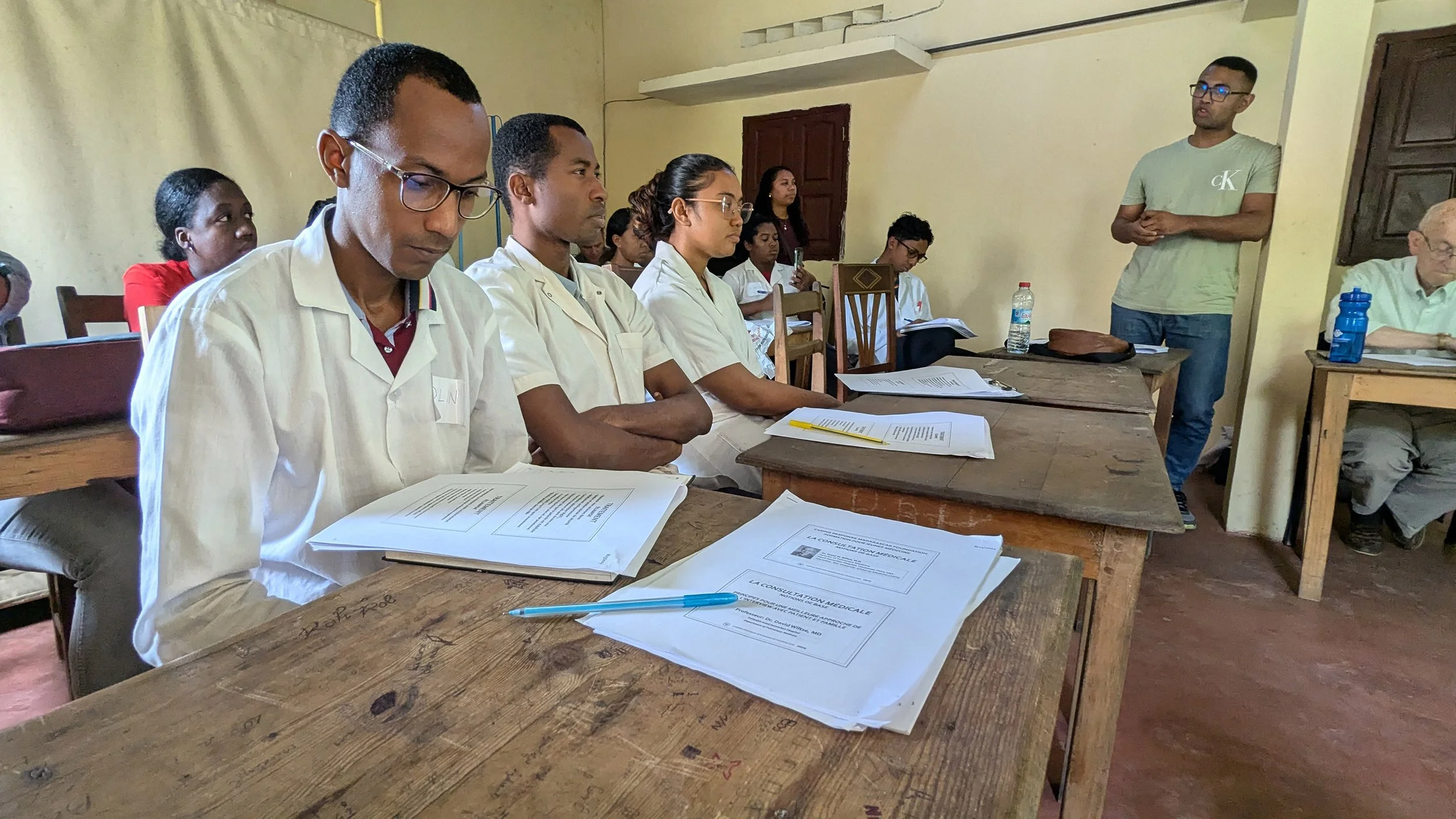
Health & Hygiene
In Madagascar, access to affordable medical care is often limited—if not completely out of reach—for both urban and rural communities.
Caring Response Madagascar Foundation (CRMF) works to bridge that gap by funding critical medical supplies, hands-on training, and free treatment across a wide range of settings, from remote rural clinics to prison hospitals and urban medical centers.
Our goal is twofold.
To provide immediate care for those in need and to strengthen the long-term capacity of local healthcare systems. We do this by equipping providers with life-saving tools and practical training, allowing them not only to serve their communities more effectively, but also to pass on their knowledge to others.
Case Studies
Ankirihiry Clinic
At the Ankirihiry Clinic in urban Toamasina, where over 1,300 babies were delivered last year, CRMF has supported a range of improvements. These include maternity beds, delivery tables, baby warmers, ultrasound and Doppler equipment, and essential medications to handle postpartum emergencies. Midwives and doctors have also trained in newborn resuscitation using Laerdal’s NeoNatalie, a newborn simulator that helps build life-saving skills.
Since 2018, CRMF has shifted its strategy to focus more heavily on clinical education. We work closely with local partners to expand training opportunities and strengthen community-based health programs. These partners include the Malagasy Sisters, who train community health workers, and ONG St. Gabriel, which educates on hygiene and water filtration systems—essential tools in preventing disease.
Antsiramandroso
Nestled in rural Toamasina, the Dispensary Antsiramandroso is a vital source of care for the Betsimisaraka tribe and surrounding communities. Run by the Daughters of Wisdom, the facility treats over 4,500 patients each year, managing diseases like malaria, tuberculosis, leprosy, and infectious diarrhea.
For many families, reaching the dispensary requires walking up to 50 kilometers—often camping nearby during treatment due to the long journey. Yet the clinic itself faced major obstacles: a deteriorating 40-year-old cinder block structure with just a few treatment rooms, one inpatient bed, and no on-site lab for diagnostic tests.
With support from CRMF, the dispensary has undergone significant upgrades, including:
A new, modern laboratory so that testing can be done on-site
A patient treatment area designed for better care and comfort
Latrines specifically constructed for leprosy patients
A new water line and septic system
Medical equipment including microscopes and diagnostic tools
Saving Lives of Moms & Babies
Maternal and infant mortality rates in Madagascar are starkly high:
Maternal mortality rate: 353/100,000 live births (compared to 24 in the U.S.)
Infant mortality rate: 34/1,000 live births (compared to 7 in the U.S.)
Neonatal mortality rate: 18/1,000 (UNICEF, 2017)
To combat these, CRMF partnered with Ankirihiry CSB2 clinic in 2011, focusing on critical risks for new mothers like postpartum hemorrhage and infections. Upgrades included running water, essential equipment, and sterilized cord clamps to reduce infection risk for newborns.
Expansion and Impact
CRMF’s maternal and infant health program has grown steadily:
2012: CRMF funded the Helping Babies Breathe program, training healthcare workers in neonatal resuscitation.
2013: Encouraged by success, the Ministry of Health expanded the program regionally, with former trainees now teaching others.
2014: Dr. Carol Egner developed a simple device to reduce postpartum hemorrhage, and all delivery ward patients received iron and vitamin supplements to combat malnutrition.

